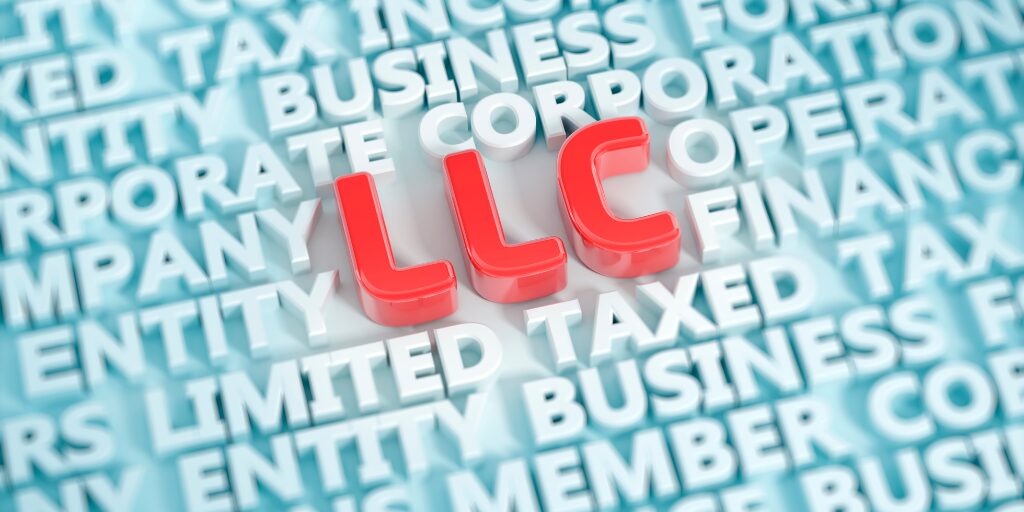Starting to build your credit can feel overwhelming, but it’s a vital step for your financial future. A solid credit history opens doors to better loan rates, rental agreements, and even job opportunities. This guide will break down everything you need to know about building credit from scratch, whether you’re just out of school or looking to improve your financial standing later in life.
Key Takeaways
- Building credit takes time and consistent effort.
- Opening a credit card is a great first step in establishing credit.
- Being an authorized user on someone else’s card can help you build credit without full responsibility.
- Pay your bills on time to maintain a good credit score.
- Keep your credit utilization ratio low to boost your credit score.
Understanding Credit and Its Importance
Okay, so you’re probably wondering what all the fuss about credit is, right? It’s more than just some number that banks use to decide if they like you. It’s a key part of your financial life, and understanding it is the first step to, well, adulting. Basically, your credit score is a snapshot of how well you handle money.
Think of it like this: if you always pay your friends back on time, they’re more likely to lend you money again, right? Credit works the same way. Lenders want to see that you’re responsible and that you’ll pay back what you borrow. A good credit history opens doors to things like lower interest rates on loans, better deals on insurance, and even renting an apartment. Seriously, landlords check that stuff now!
And it’s not just about borrowing money. Some employers even check your credit report before hiring you. They figure it’s a way to see how responsible you are. So, yeah, understanding credit and building a good credit history is pretty important. It’s like having a good reputation, but for your wallet.
What is Credit?
Why Building Credit Matters
What is Credit?
Okay, so what is credit, really? It’s more than just a plastic card you swipe at the store. Think of it as your financial reputation. It’s a lender’s way of figuring out how likely you are to pay back money you borrow. Basically, it’s all about trust.
Credit is the ability to borrow money or access goods or services with the understanding that you’ll pay later. It’s built on a promise, and your credit history is the record of how well you’ve kept those promises in the past.
It’s made up of a few key things:
- Your Credit History: This is a record of all your borrowing and repayment activity. It includes things like credit cards, loans, and even utility bills. It’s like a financial report card.
- Your Credit Score: This is a three-digit number that summarizes your creditworthiness. It’s based on the information in your credit history, and it helps lenders quickly assess your risk.
- Credit Reports: These are detailed reports that contain all the information used to calculate your credit score. You can check your credit score for free from the three major credit bureaus: Experian, Equifax, and TransUnion.
Think of it this way: if you always pay your bills on time and manage your debt responsibly, you’ll build a good credit history and a high credit score. But if you miss payments or max out your credit cards, your credit will suffer. And that can affect your ability to get loans, rent an apartment, or even get a job. It’s a big deal!
Why Building Credit Matters
So, why even bother with building credit? It might seem like a hassle, but trust me, it’s worth it. A good credit history is like a golden ticket to a lot of things in life. It’s not just about getting approved for credit cards; it affects so much more.
First off, think about renting an apartment. Landlords often check credit scores to see if you’re a reliable tenant. A solid credit history can be the difference between getting your dream place and being stuck searching for something else. Same goes for buying a house – a good credit score can help you get a better mortgage rate, saving you a ton of money over the life of the loan.
And it’s not just about big purchases. Even things like getting a cell phone plan or setting up utilities can be easier with good credit. Plus, many employers now check credit as part of their background checks. It’s all about showing that you’re responsible and can handle your finances.
Basically, building credit opens doors and makes life a whole lot easier. It’s an investment in your future self, so start early and stay consistent.
How Credit Scores Work
Credit scores are those three-digit numbers that everyone seems to stress about, but what do they really mean? Basically, they’re a snapshot of how likely you are to pay back money you borrow. Lenders use these scores to decide if they should give you a loan or a credit card, and at what interest rate. A higher score usually means you’re seen as less risky, so you’ll get better terms.
Factors Affecting Your Credit Score
Your credit score isn’t just pulled out of thin air. It’s calculated based on a bunch of stuff in your credit report. Here’s a quick rundown of the main things that influence it:
- Payment History (35%): This is the big one. Do you pay your bills on time? Late payments can really hurt your score.
- Amounts Owed (30%): How much debt do you have compared to your available credit? Maxing out your credit cards is a no-no.
- Length of Credit History (15%): The longer you’ve had credit, the better. It shows lenders you have experience managing it.
- Credit Mix (10%): Having different types of credit (like credit cards, loans, etc.) can be a good thing, as long as you manage them well.
- New Credit (10%): Opening a bunch of new accounts at once can lower your score, especially if you don’t have a long credit history.
Think of it like this: your credit score is a reflection of your financial habits. Good habits lead to a good score, and bad habits… well, you get the idea.
Types of Credit Scores
It’s not just one score to rule them all. There are different scoring models out there. The most common one is FICO, created by Fair Isaac Corporation. But there’s also VantageScore, which is used by many lenders as well.
FICO scores generally range from 300 to 850, and here’s how they’re typically categorized:
| Score Range | Category |
|---|---|
| 800-850 | Exceptional |
| 740-799 | Very Good |
| 670-739 | Good |
| 580-669 | Fair |
| 300-579 | Poor |
VantageScore uses a similar range. The thing is, each credit bureau (Equifax, Experian, and TransUnion) might have slightly different information about you, so your score can vary a bit from one to another. Plus, lenders can choose which version of the FICO or VantageScore model they want to use. It can be a little confusing, but the important thing is to focus on building good credit habits, and the scores will usually follow.
Steps to Start Building Credit
Okay, so you’re ready to actually start building credit? Awesome! It might seem daunting, but it’s totally doable. Here’s how to get the ball rolling.
Opening a Credit Card
Getting your own credit card is often the first step for many people. It’s like getting your foot in the door. But not all credit cards are created equal, especially when you’re just starting out.
- Secured Credit Cards: These are great if you have limited or no credit history. You put down a deposit, and that deposit usually becomes your credit limit. It’s less about the card provider trusting you, and more about you trusting yourself. Plus, responsible use helps build your credit history.
- Student Credit Cards: If you’re a student, these can be a good option. They often have rewards programs geared towards students and might be easier to get approved for than regular cards.
- Unsecured Credit Cards: These are harder to get when you have no credit, but if you have some credit history (maybe as an authorized user – more on that below), you might qualify. Look for cards designed for people with fair credit.
Becoming an Authorized User
This is a sneaky-smart way to piggyback off someone else’s good credit. Basically, you become an authorized user on someone else’s credit card account (with their permission, of course!). Their responsible use of the card helps you build credit, even though you’re not the primary account holder. Just make sure they actually are responsible! You don’t want their bad habits tanking your credit before you even get started.
Taking Out a Small Loan
This might sound counterintuitive – taking on debt to build credit? But hear me out. A small loan, like a credit-builder loan, can be a good way to show lenders you can handle debt responsibly. The key is to make sure you can comfortably afford the payments. Don’t borrow more than you need, and definitely don’t miss any payments. Some lenders offer loans specifically designed for building credit. They might hold the loan amount in an account and release it to you after you’ve made all the payments. This ensures you can’t spend the money and not pay it back. It’s like a forced savings plan that also builds your credit.
Maintaining Good Credit Habits
Okay, so you’ve started building credit. Awesome! Now, the real trick is keeping it up. It’s not a one-and-done thing; it’s more like a plant you need to water regularly. Here’s how to keep your credit score healthy and happy.
Paying Bills on Time
Seriously, this is huge. Payment history is a massive part of your credit score. I’m talking like, a really, really big deal. Set up automatic payments if you have to. I know, it feels weird to let the robots handle your money, but trust me, it’s better than forgetting and getting hit with a late fee. Those late payments stick around on your credit report for years, and they can really drag your score down. Even one late payment can ding your score, so don’t risk it. I have reminders set on my phone, and I still almost missed one last month!
Keeping Credit Utilization Low
Think of your credit card limit as a pie. You don’t want to eat the whole pie, right? Lenders feel the same way about your credit. Credit utilization is how much of your available credit you’re using. The lower, the better. Ideally, you want to keep it below 30%. So, if you have a credit card with a $1,000 limit, try not to charge more than $300 on it. I know it’s tempting to max it out, especially when you see something you really want, but resist! It’s better to wait and save up than to hurt your credit score. I try to pay mine off every week, just to be safe.
Wrapping It Up
So, there you have it! Building credit isn’t as scary as it seems. It takes time and a bit of patience, but starting is the most important part. Whether you go for a secured credit card, become an authorized user, or take out a small loan, just remember to keep up with your payments and stay on top of your credit activity. Before you know it, you’ll have a solid credit history that opens doors for you, like better loan rates and even that dream apartment. Just take it step by step, and you’ll be on your way to a healthier financial future.
Frequently Asked Questions
What is credit?
Credit is the ability to borrow money or access goods and services with the promise to pay later. It shows how trustworthy you are with money.
Why is building credit important?
Having good credit is important because it helps you get loans, rent apartments, and buy cars. It can also save you money with lower interest rates.
How does a credit score work?
A credit score is a three-digit number that shows how well you manage your money. Higher scores mean you are more reliable with payments.
What factors affect my credit score?
Your credit score can be affected by things like payment history, how much credit you use, and how long you have had credit.
What are secured credit cards?
Secured credit cards are special cards for people who are just starting to build credit. You put down a deposit that acts as your credit limit.
Can I build credit without a credit card?
Yes! You can build credit by becoming an authorized user on someone else’s card or by taking out a small loan.
How can I maintain good credit?
To keep good credit, always pay your bills on time and try to use less than 30% of your available credit.
How often should I check my credit report?
It’s a good idea to check your credit report at least once a year to make sure everything is correct and to catch any mistakes.




